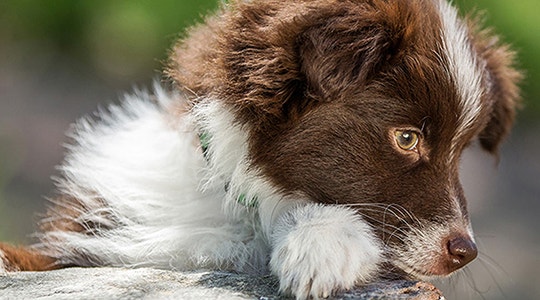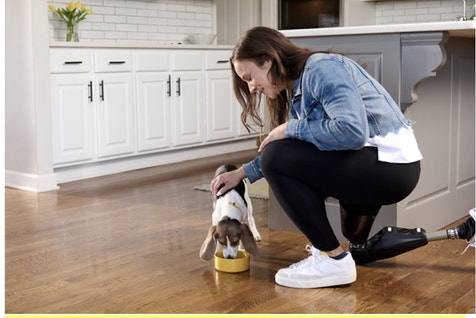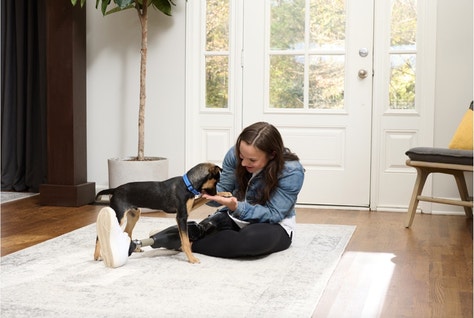
Why Does My Dog Chew on His Leg?
It's not uncommon to see your dog chew on his leg or paw—after all, even dogs get occasional itches that need scratching. But if your dog has become an obsessive chewer of his leg or paw, there may be a serious problem underlying his behavior, and an examination by his veterinarian could be necessary.
How to tell if your dog is a chronic chewer
The most obvious way to determine if your dog has become a chronic chewer is to watch him. If you notice that he is spending an abnormally high amount of time performing this behavior, take a closer look at the area that he's chewing. If the leg or paw has become sore, raw, inflamed, or if the fur has been licked away, you should be concerned.
Medical or physical causes of this problem
Dogs that chronically bite/chew/lick their paws or legs are experiencing more than just a typical itch. It could be that your dog has developed an allergy or is suffering from an insect/bug bite or a fungal infection. Another possibility is that your dog stepped into something caustic or irritating when he was out for a walk. It could also be bacterial pyoderma (opens in new window) , also known as impedigo, which is a bacterial skin inefection common in puppies and dogs. Whatever the cause, if the area is sore and irritated, take your dog to the vet for an examination and treatment. The treatment will depend on the diagnosed cause of the problem.
Psychological or behavioral causes
Dogs are pack animals by nature; this means that they need companionship and don't like being left alone for long periods. Often, if pets are left alone too long, they will lick and chew an area of their body until it gets raw and sore. This is most common in pets with high energy levels that are bored, or that aren't getting enough exercise or attention. If this is your situation, perhaps you could ask a friend to walk or play with your dog in the middle of the day.
Hiring a dog walker is also a great idea—and you can also check to see if there's a doggie daycare in your area. Be sure to provide your dog with stimulating toys that will help keep him occupied when you're not around to play with him. Another tip that could work for your dog is to keep the television or the radio on. Sometimes this provides some distraction and 'companionship' for your dog when you're away from home.




